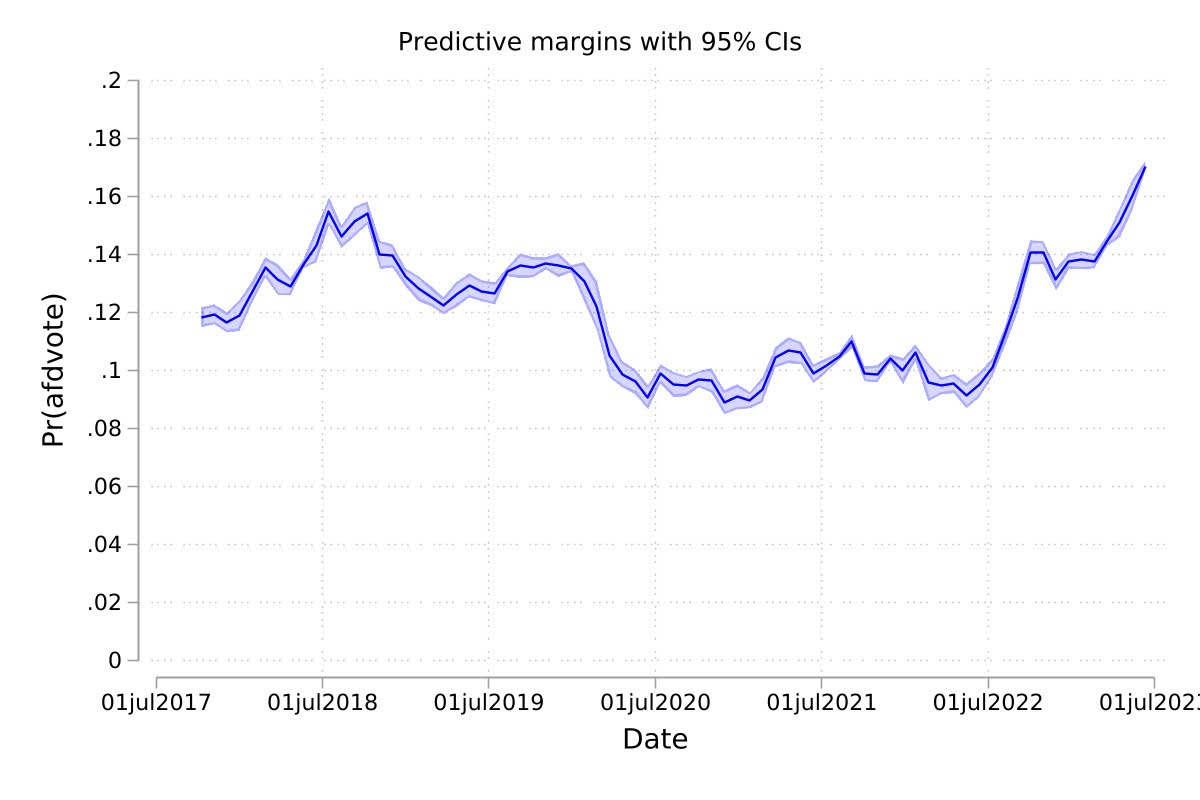Category: Data and Methods
ChatGPT is trying to replace me
Everyone is replaceable.So I asked the machine to write a paragraph in the style of me.
An Ode to Maximum Likelihood Estimation, by ChatGPT. And a sonnet. And a haiku.
Artificial Intelligence is coming for us, so let’s hide behind Natural Stupidity
The Radical Right Research Robot is on Mastodon
The Radical Right Research Bot is now also on Mastodon. Click here to find it.
The seven least unread blogs in 2022
This year’s 7 most read blog-posts, ranked.
Definitive version of article on measuring political secularism published (yay!)
Santa came early and brought me a volume, an issue & even some page numbers. In other word, my Politics & Religion article on the 𝗺𝗲𝗮𝘀𝘂𝗿𝗲𝗺𝗲𝗻𝘁 𝗼𝗳 𝘀𝗲𝗰𝘂𝗹𝗮𝗿𝗶𝘀𝗺 is out in print (how very old school!). [bibtex file=ka.bib key=arzheimer-2022] But hey, it is still 𝗼𝗽𝗲𝗻 𝗮𝗰𝗰𝗲𝘀𝘀 and digitally yours at https://doi.org/10.1017/S1755048322000104.
Top tip for academic recommendation letter writing: the machine can do it for you
Stop wasting your time. GPT 3.5 can write a plausible recommendation letter for your student.
I asked the AI chatbot to channel Ronald Inglehart, and the result is good enough to fool Google
In 2022,AI is good enough to write a paragraph in the style of Ronald Inglehart. This is disruptive, to say the least.
Bots now fully able to replace the remaining human users on Twitter
I’m putting this here for your consideration. In my humble opinion, it is indistinguishable from the original. Probably it is time for us to go back to doing actual science stuff and things.
Automated niche tweets are a thing now
I asked an AI how Twitter relates to the Tannhauser Gate. This is what they told me.




